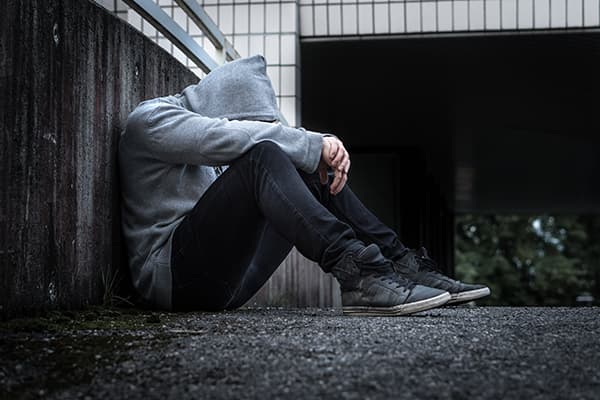Four out of ten Norwegian Muslims 'made to feel they do not belong'

Being discriminated against by public institutions, feeling as if they had to hide their religious identity and harassment were some of the experiences Muslims in Norway told a report they had been through in the past year.
A full 43 percent of those questioned for the survey, commissioned by the Directorate of Integration and Diversity (IMDI) and carried out for the Norwegian Center for Holocaust and Minority Studies, said that they had "often" or "sometimes" been given the feeling of not belonging.
One in five respondents said they had experienced discrimination from public institutions in Norway on the basis of their religious identity, one in four said they had experienced harassment over the past 12 months, and one in three respondents said they hid their religious identity out of fear of negative attitudes.
Men were more likely than women to hide their religious identity, with 37 per cent of men reporting doing so, compared to 29 percent for women.
"The experiences described to us clearly show that there is a nationalist dimension to anti-Muslim attitudes," said Cora Alexa Døving, one of the researchers behind the study, said in a press release. "Many of the experiences are about being defined by a Norwegian community: 'go back to where you come from', 'you Muslims are not like us', and so on."
Reda Foad Bader Al-Shemmari, a local Labour party politician in the Grorud district of Oslo told the Aftenposten newspaper that most Muslims in Norway experienced prejudice.
"I think Islamophobia, subtle racism, discrimination and prejudice are something most Muslims have experienced," he told the newspaper, remembering the repeated rejections he got when applying for jobs after graduating from upper secondary school, something he blames on his Islamic name.
"It is a fundamental problem. I have several friends who have changed to more Norwegian names," he said.
Døving said that the report indicated that Muslims' perception of discrimination had increased in recent years.
"If we look at the experiences described and previous documentation, we see an increase in Muslims reporting perceived discrimination," she said.
She said that the survey had adopted a broader concept of discrimination, which included experiences of exclusion, prejudice and stereotyping which would not count as discrimination in the legal sense.
Respondents to the survey described being passed over for internal promotion, encountering prejudice from customers and clients, being harassed about wearing Islamic headdress, being confronted about Islam, and particularly on the position of women, and being frequently forced to discuss the Islamic ban on drinking alcohol or eating pork.
Many said they were frequently asked in-depth questions related to their Muslim identity that were irrelevant to the work to be carried out.
Comments
See Also
A full 43 percent of those questioned for the survey, commissioned by the Directorate of Integration and Diversity (IMDI) and carried out for the Norwegian Center for Holocaust and Minority Studies, said that they had "often" or "sometimes" been given the feeling of not belonging.
One in five respondents said they had experienced discrimination from public institutions in Norway on the basis of their religious identity, one in four said they had experienced harassment over the past 12 months, and one in three respondents said they hid their religious identity out of fear of negative attitudes.
Men were more likely than women to hide their religious identity, with 37 per cent of men reporting doing so, compared to 29 percent for women.
"The experiences described to us clearly show that there is a nationalist dimension to anti-Muslim attitudes," said Cora Alexa Døving, one of the researchers behind the study, said in a press release. "Many of the experiences are about being defined by a Norwegian community: 'go back to where you come from', 'you Muslims are not like us', and so on."
Reda Foad Bader Al-Shemmari, a local Labour party politician in the Grorud district of Oslo told the Aftenposten newspaper that most Muslims in Norway experienced prejudice.
"I think Islamophobia, subtle racism, discrimination and prejudice are something most Muslims have experienced," he told the newspaper, remembering the repeated rejections he got when applying for jobs after graduating from upper secondary school, something he blames on his Islamic name.
"It is a fundamental problem. I have several friends who have changed to more Norwegian names," he said.
Døving said that the report indicated that Muslims' perception of discrimination had increased in recent years.
"If we look at the experiences described and previous documentation, we see an increase in Muslims reporting perceived discrimination," she said.
She said that the survey had adopted a broader concept of discrimination, which included experiences of exclusion, prejudice and stereotyping which would not count as discrimination in the legal sense.
Respondents to the survey described being passed over for internal promotion, encountering prejudice from customers and clients, being harassed about wearing Islamic headdress, being confronted about Islam, and particularly on the position of women, and being frequently forced to discuss the Islamic ban on drinking alcohol or eating pork.
Many said they were frequently asked in-depth questions related to their Muslim identity that were irrelevant to the work to be carried out.
Join the conversation in our comments section below. Share your own views and experience and if you have a question or suggestion for our journalists then email us at [email protected].
Please keep comments civil, constructive and on topic – and make sure to read our terms of use before getting involved.
Please log in here to leave a comment.